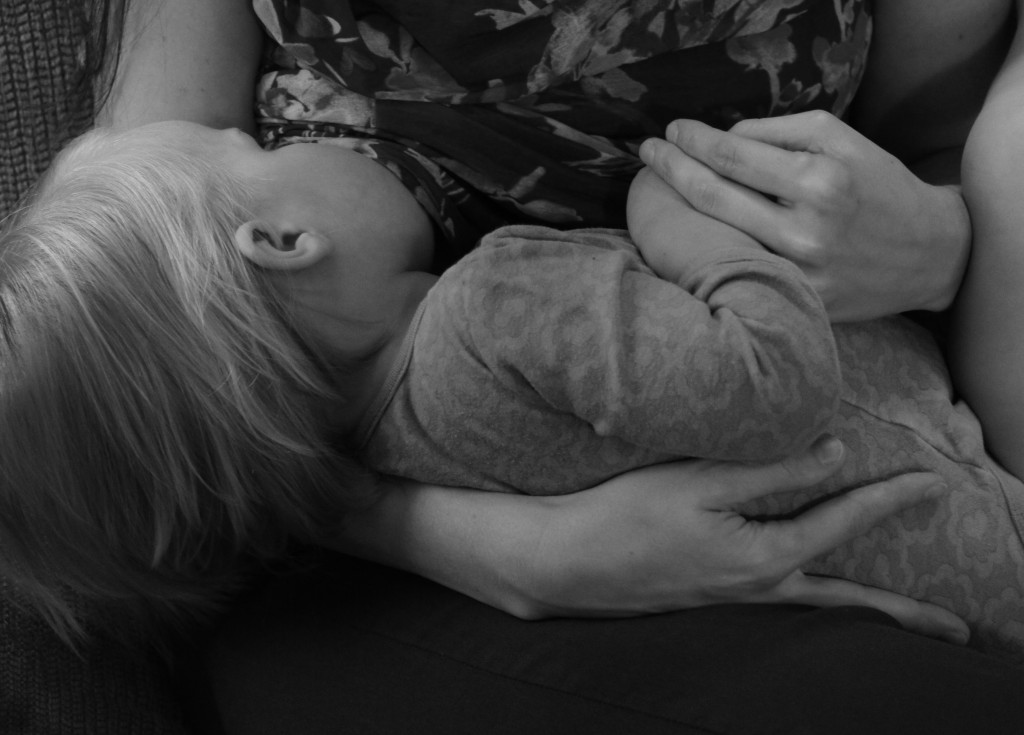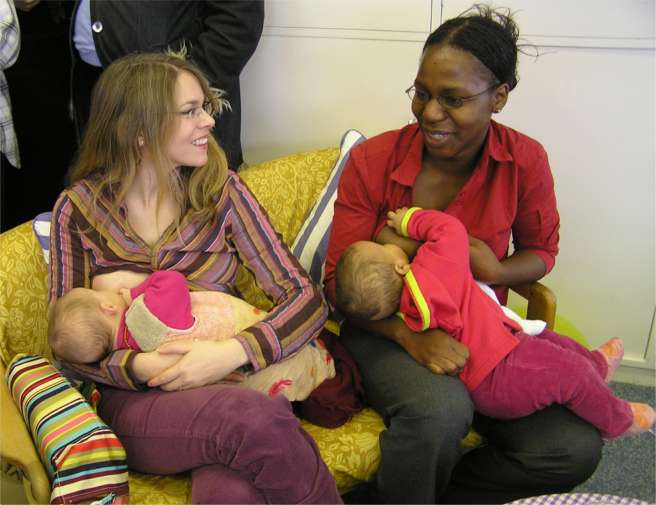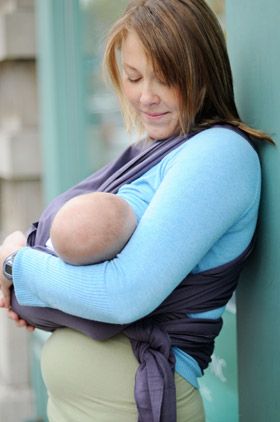After 18 months of uneventfully nursing my daughter Elle as we go about our daily lives, I’d never received so much as a dirty look from anyone, anywhere. It’s not shocking. Among the highly educated here in New England, baby-wearing and breastfeeding are en vogue.
But I was just told by the director of my daughter’s daycare that, on the rare occasion when I need to nurse Elle at daycare before leaving for the day, it would be appreciated if I not do so in the toddler room. Smack in the middle of World Breastfeeding Week, no less.
I was told that they just don’t want other families to feel uncomfortable. Perhaps I could nurse Elle in the car?
Fat chance – she doesn’t fit across my lap and wiggles out of my arms to get to the steering wheel to “drive”, the little squirt! Besides, even if the temperature is by some miracle tolerable, would that be your first choice location to have a meal with someone you love?
According to the director, I could also take my daughter down the hall to nurse in the infant room — more “age appropriate”. The World Health Organization recommends breastfeeding until at least age two [B]; how is nursing an 18 month old not age-appropriate? Besides, Elle would rather coo at the babies in the infant room instead of nursing.
You see, breastfeeding is, well, organic: you can’t predict or plan when your child will beg for milk and ignoring her cries comes at a cost (not just working-mommy guilt but sometimes also wet leak-spots on your shirt). During the curious toddler years, it rarely works to just snatch a child up and go to a new location to nurse. At least not within commuter-train time constraints. I explained this.
The daycare director became agitated: all the other mothers we have asked have stopped nursing in the toddler room. Don’t you care about how you make others feel? People aren’t used to seeing it. What am I supposed to tell people who are uncomfortable seeing you nurse your daughter.
And that is the moment I realized why breastfeeding in public matters.
My answer to her was a question: What do you tell people who are uncomfortable seeing someone pray quietly with their child? What do you tell people who are uncomfortable seeing a gay couple, or a bi-racial couple, drop off their child together? What do you tell people who are uncomfortable seeing someone else’s disabled or disfigured child? Do you ask the ‘offending’ parents to use the back entrance? Go in another room where no one can see them?
No. You look the ‘offended’ person straight in the eye and say, “I’m sorry to hear that it bothers you, but supporting parents in caring for their children is more important to us than protecting you from discomfort.”
The fact is, I would not have been interrogated if I had given my daughter a cup of milk, or just snuggled her a few minutes upon dropping her off. I had pointed out that I’m quite discreet – I’m in the far corner of the room, completely covered, with my back to everyone; even if I were facing people, no one could possibly see any body parts they don’t regularly see at the beach or a PG movie.
So really what I was being told was to be respectful of people who are uncomfortable with the idea of breastfeeding. And on that point I am willing to stand up for all the other nursing mothers – those who are less inclined to take a small-scale conflict and turn it into a war against injustice – and say:
Asking a mother to go elsewhere to nurse her child sends a message to the woman (and everyone else) that nursing a child needs to be hidden from view rather than just being a normal part of everyday life.
Statistics for America have improved but are still well below recommendations: 77% of U.S.-born infants begin life breastfeeding but only 16% are still exclusively breastfed at 6 months [C]. The CDC does not even track breastfeeding in the U.S. at 2 years, the WHO-recommended guideline.
And the lack of mothers nursing in public means that people will continue to think it is not normal and be uncomfortable about it.
Not convinced? Still queasy about mothers nursing in public? Well, you’re going to have to get over it.
Society has decided that breastfeeding is important enough – as a basic human right and a public health issue – that it overrides your discomfort. Laws in 48 of the 50 states protect a mother’s right to nurse her baby, with or without a cover, whenever and wherever they are otherwise legally allowed to be [D].
Suggest otherwise to a nursing mother and you could be subject to a fine. Not just in restaurants and parks and stores, but also (gasp!) childcare centers, including a room (double gasp!) intended for feeding and nurturing toddlers.
– Anne Carpenter Van Dyk, PhD, is a research scientist and mother.
Links:
[A]www.who.int/mediacentre/events/meetings/2014/world_breastfeeding_week/en/
[B]www.who.int/topics/breastfeeding/en/
[C]www.cdc.gov/breastfeeding/pdf/2013BreastfeedingReportCard.pdf
[D]www.ncsl.org/research/health/breastfeeding-state-laws.aspx




